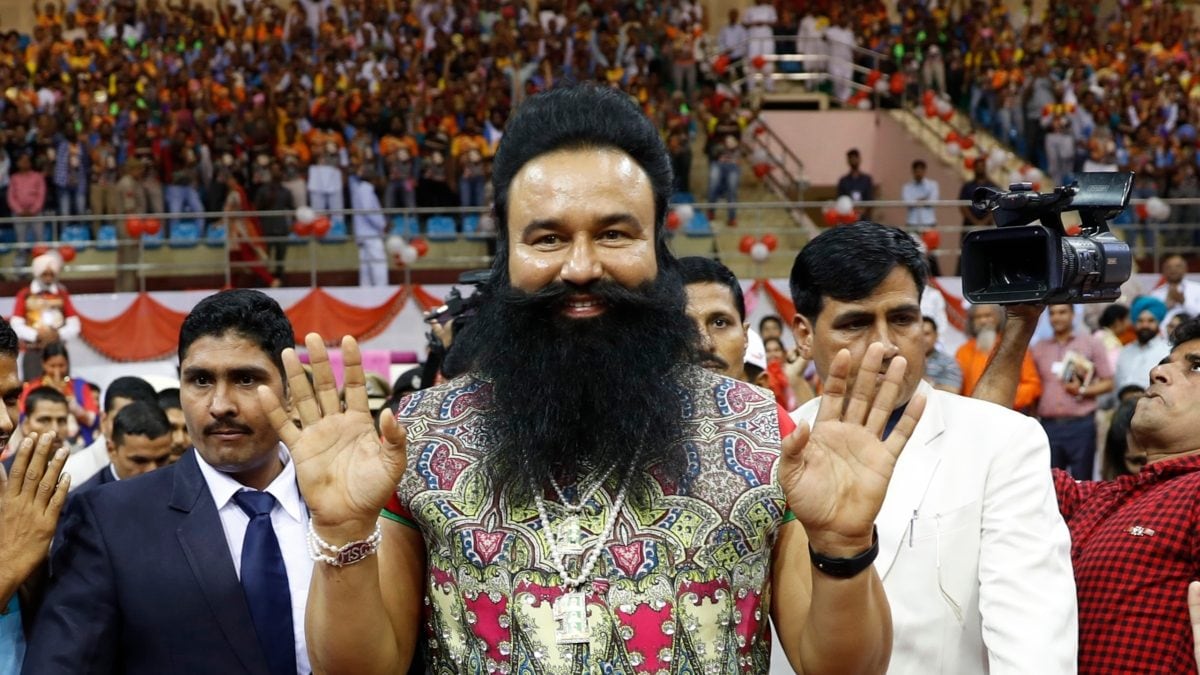 |
|
The Supreme Court of India has initiated a review of the acquittal of Gurmeet Ram Rahim Singh, the controversial leader of the Dera Sacha Sauda, in a 2002 murder case. This action stems from a plea filed by the Central Bureau of Investigation (CBI) challenging the Punjab and Haryana High Court's decision to overturn the conviction of Ram Rahim and four other individuals. The original conviction, handed down by a special CBI court in 2021, found Ram Rahim guilty of the murder of Ranjit Singh, a former Dera Sacha Sauda manager. The high court's reversal of this verdict in May 2024 prompted the CBI to seek special leave to appeal to the Supreme Court, a move that underscores the gravity of the case and the potential implications for justice. The Supreme Court's decision to issue a notice to Ram Rahim, demanding a response to the CBI's petition, signifies the seriousness with which the highest court in the land is treating this matter. The case highlights the complexities of the Indian legal system, the challenges in prosecuting high-profile individuals, and the ongoing struggle for accountability in cases involving powerful figures.
The Ranjit Singh murder case is intricately linked to another high-profile murder, that of Sirsa-based journalist Ram Chander Chhatrapati. Both murders are allegedly connected to a letter detailing the sexual exploitation of women within the Dera Sacha Sauda headquarters in Sirsa. Ranjit Singh's alleged role in circulating this letter is believed to have been the motive for his assassination. Chhatrapati, who used the same letter in a news report, was killed shortly afterward. The fact that Ram Rahim was also convicted in the Chhatrapati murder case further emphasizes the significance of the legal battles surrounding his actions and the broader implications of his alleged crimes. The interconnectedness of these cases highlights a pattern of alleged violence and suppression of dissent within the Dera Sacha Sauda and the challenges faced in uncovering and prosecuting such crimes.
The Supreme Court's decision to consolidate the CBI's petition with a separate petition filed by a family member of Ranjit Singh underscores the collective desire for justice in this case. The family's pursuit of accountability underscores the importance of victim rights and the ongoing struggle for justice in high-profile cases. The actions of both the CBI and the family member demonstrate the determination to see that the legal process is followed completely and that those responsible for the murder of Ranjit Singh are held accountable. This consolidated approach by the Supreme Court suggests a comprehensive examination of the evidence and legal arguments presented in the case. The Court’s decision to direct Ram Rahim to respond to the petition sets the stage for a potentially lengthy and complex legal process that will further scrutinize the evidence and proceedings that led to the controversial acquittal of Ram Rahim and his co-accused by the Punjab and Haryana High Court.
The timeline of events in this case reveals a protracted legal battle that has spanned several years. From the initial conviction in 2021 to the subsequent acquittal in 2024 and now the Supreme Court's intervention, the case has drawn significant attention from the public and media. The Supreme Court's involvement demonstrates the importance of upholding justice and ensures that the highest standards of due process are maintained. The length of this process is a stark reminder of the intricate and time-consuming nature of the Indian judicial system, particularly in high-profile and sensitive cases. The complexity of the legal challenges and the involvement of multiple parties contribute to the extended duration of this case. The outcome will likely have significant implications for the pursuit of justice in similar cases involving powerful figures and the protection of victims' rights.
The ongoing legal proceedings concerning Gurmeet Ram Rahim Singh highlight the challenges in balancing the pursuit of justice with the rights of the accused. The Indian legal system is designed to provide a fair trial to all individuals, regardless of their social status or influence. However, the case also highlights the limitations and complexities in ensuring accountability for individuals with significant power and influence. The outcome of the Supreme Court's review will have profound implications, not only for Ram Rahim's fate but also for the broader issue of accountability and the protection of vulnerable individuals against powerful figures who potentially abuse their authority. The court's decision will be closely watched by the public, legal experts, and civil society organizations alike. This case serves as a reminder of the ongoing struggle for justice and the need for transparency and accountability in the judicial process. The ultimate resolution will greatly impact the public's trust in the efficacy of the legal system in pursuing justice in highly publicized cases involving powerful figures.
Source: SC Seeks Gurmeet Ram Rahim's Response On CBI Plea Challenging His Acquittal In 2002 Murder Case
